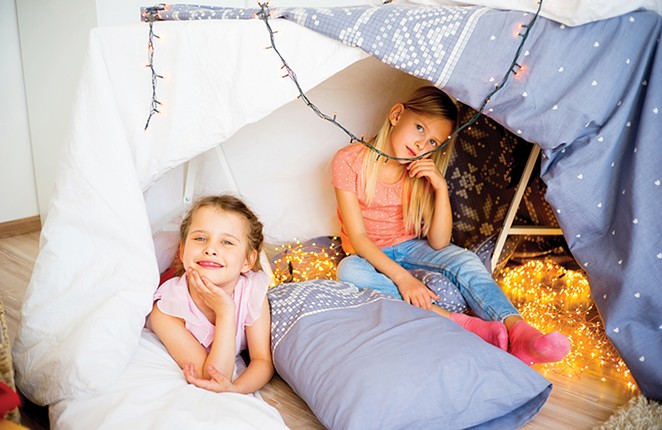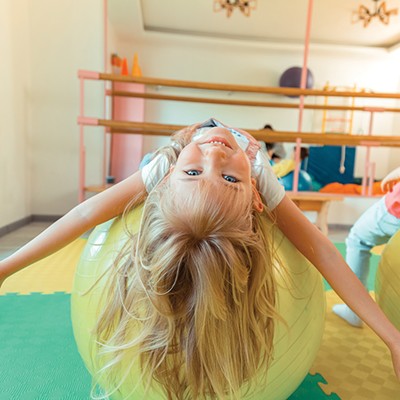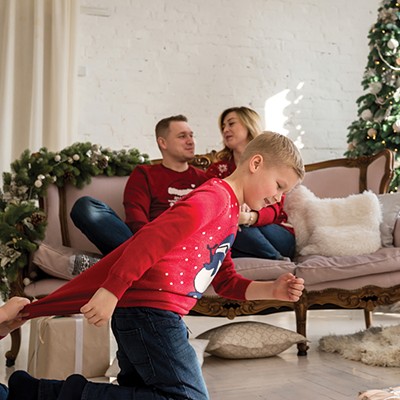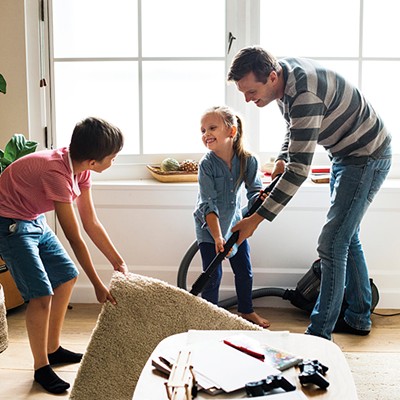Autumn brings renewed excitement as children head to school and connect with friends new and old. Social opportunities abound and inevitably, parents are called upon to gate-keep and review their child's readiness for independence.
One of the biggest questions on parents' minds these days are sleepovers – when is a child ready to sleep away from home? How can parents best prepare them for this exciting new experience?
Sleepovers provide kids with a valuable opportunity to practice social skills and resiliency in a new setting, but they can also be anxiety-provoking, especially when it's the first time being away from home.
Often the idea of a sleepover comes up midway through elementary school as the child reaches the age of nine or 10, but every child is different, and some may be ready sooner, later or never. While there aren't any set-in-stone rules for age ranges, there are some general guidelines to help kids and parents prepare.
Here are some signs your child may be ready for their first sleepover or slumber party at a friend's house:
- They have already stayed overnight in a place other than their own home several times, such as a hotel room, tent or relative's house.
- They usually sleep well through the night and don't often wake from nightmares, bathroom visits, etc.
- Generally, they are not afraid of the dark and feel comfortable at night.
- They can get ready for bed without adult help.
- They enjoy socializing and get along well with other children on play dates.
- They have practice asking adults for help, such as teachers and coaches.
- You have discussed basic body boundaries with them, and your child knows and can articulate what is and is not OK in terms of safe touch.
- They have your phone number memorized and know how to call you if they need support.
Finally, consider carefully who is inviting your child to their house. Does your child know this friend well? Have you met the parents and established a rapport? Always trust your gut!
If you believe that your child meets all the criteria for their first sleepover, the next step is to reach out to the friends' parents to discuss ground rules and expectations. Clear communication is the key to a successful experience.
Some potential questions to ask the parents might include:
- How will children be supervised, or will they be left on their own to play?
- Where will the children be sleeping? In a shared bed, in sleeping bags on the floor, in bunk beds?
- What are the family's policies in terms of screen time, video games, movie ratings, sugar and other potentially touchy parenting topics?
- Are there any guns or weapons in the house and if so, are they stored properly in a locked area?
- Are there any medications or substances in the house that children could potentially access?
- Are there any pets present?
- Is there a pool, pond or other large body of water on or near the property and if so, is it easily accessible?
- Are there any older siblings or unrelated adults living in the home?
- Is everyone currently living in the home healthy or have there been any recent communicable illnesses in the home?
After combing through this exhaustive pre-sleepover checklist and giving your child the green light, the next step is to prepare them for the experience. Talk about what to expect, make clear your expectations for how they should behave and let them know you will pick them up any time, even in the middle of the night. (Be sure to keep your charged phone on your bedside all night, just in case!)
Finally, if your child is drawn to the magic of a sleepover but isn't quite ready for the full experience, consider offering them a "sleepunder" instead. Like their cousin, the sleepover, sleepunders are when kids go to another child's house in the early evening and do all the usual sleepover activities — party games, movies, dinner, dessert, etc. — but then go home just before bedtime.
This option is a good intermediary step that allows for the benefits of the sleepover experience while keeping kids secure at home overnight. If you're on the fence about a sleepover, a sleepunder can be the perfect compromise.
Taking the time to assess your child's readiness for a sleepover goes a long way toward supporting their independence one developmental step at a time. Just remember, sleepovers are not for everyone, but that doesn't mean your child can't find other ways to connect and establish meaningful and long-lasting friendships.






















